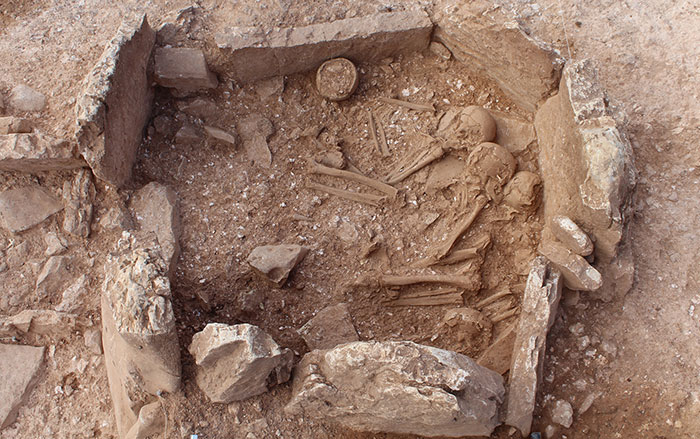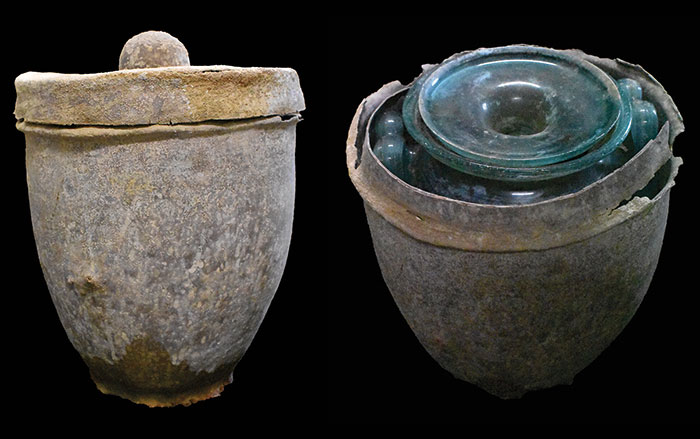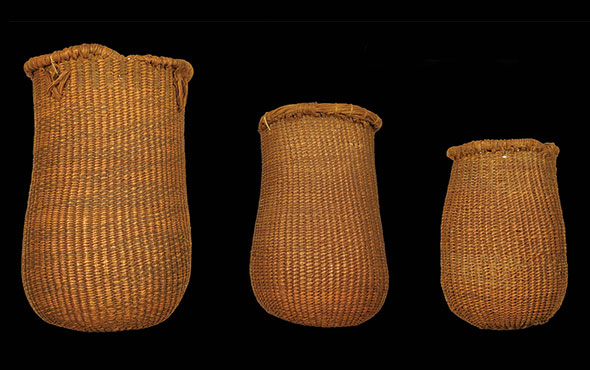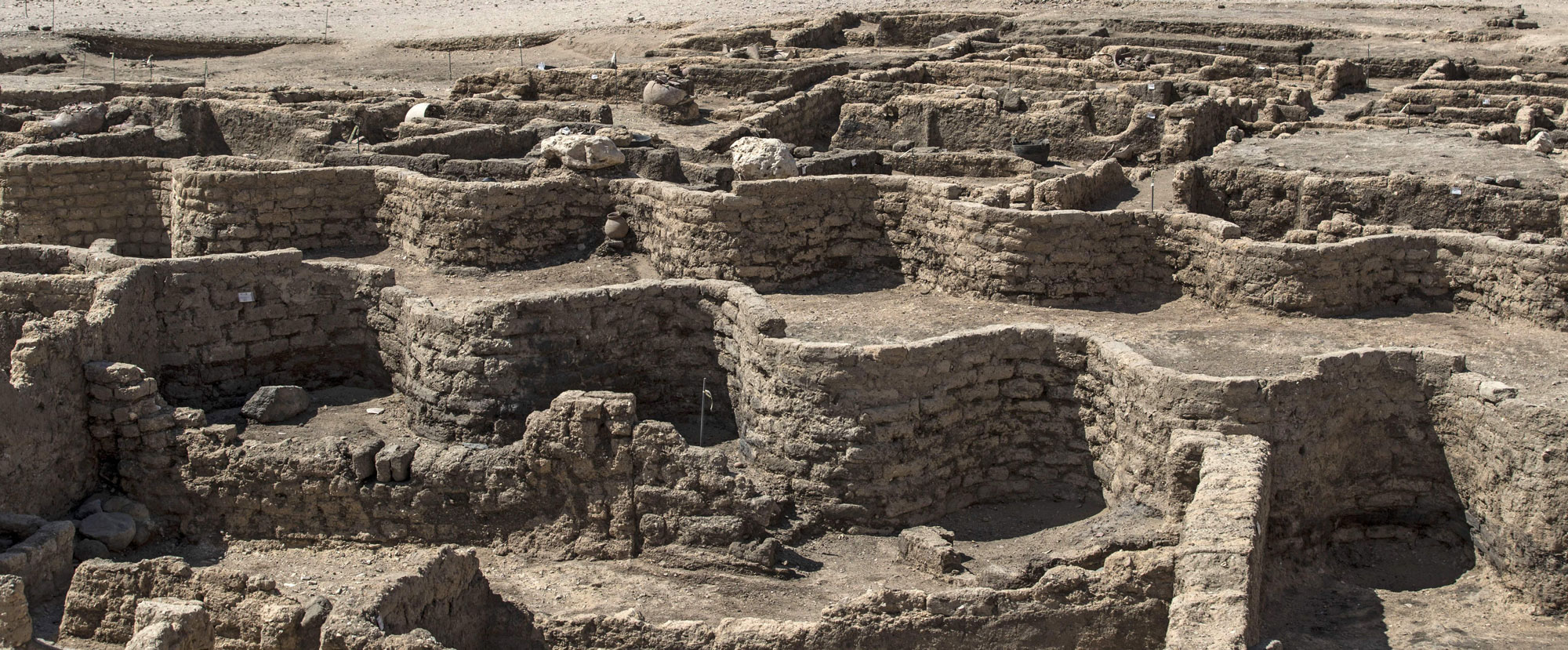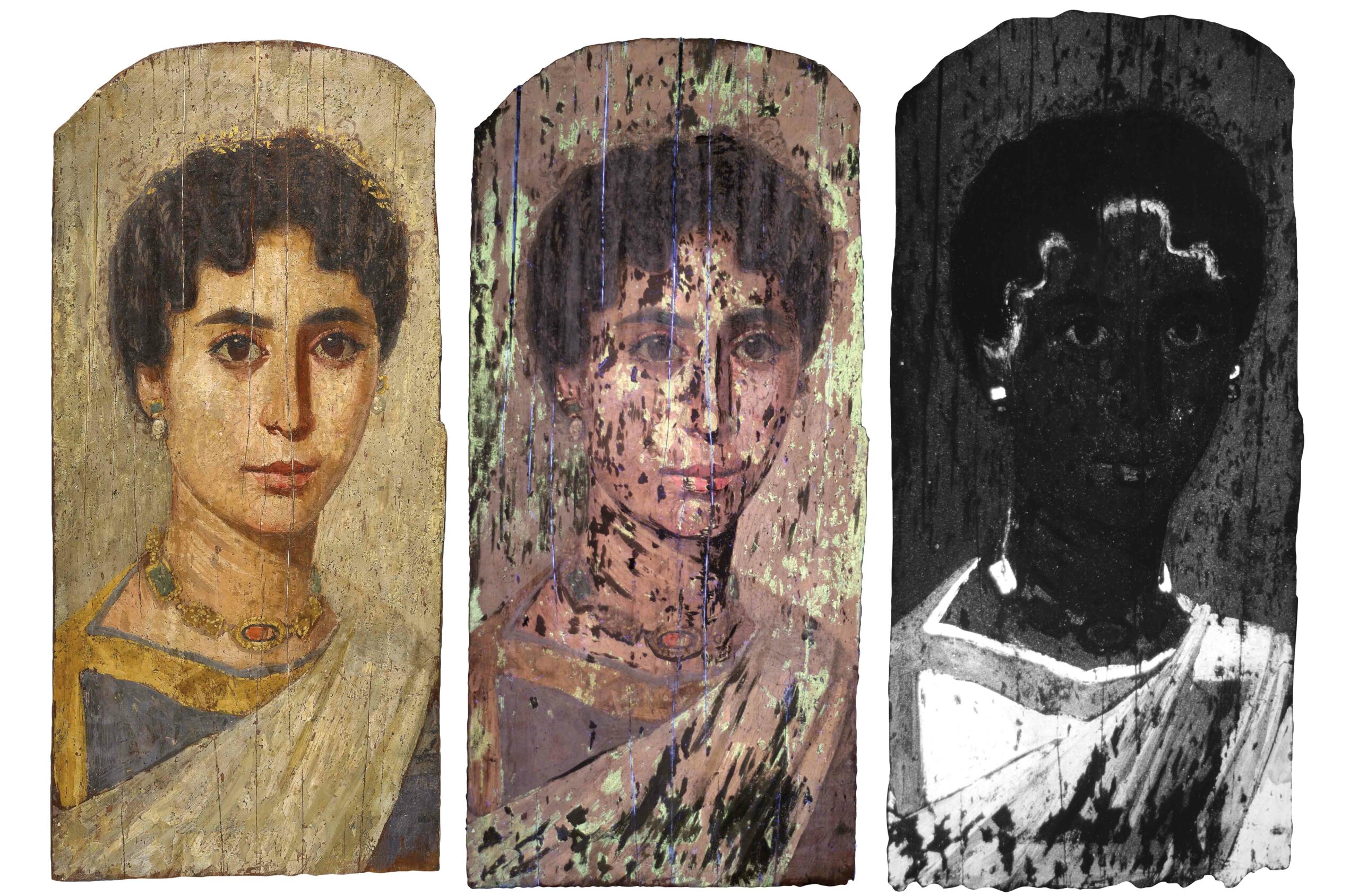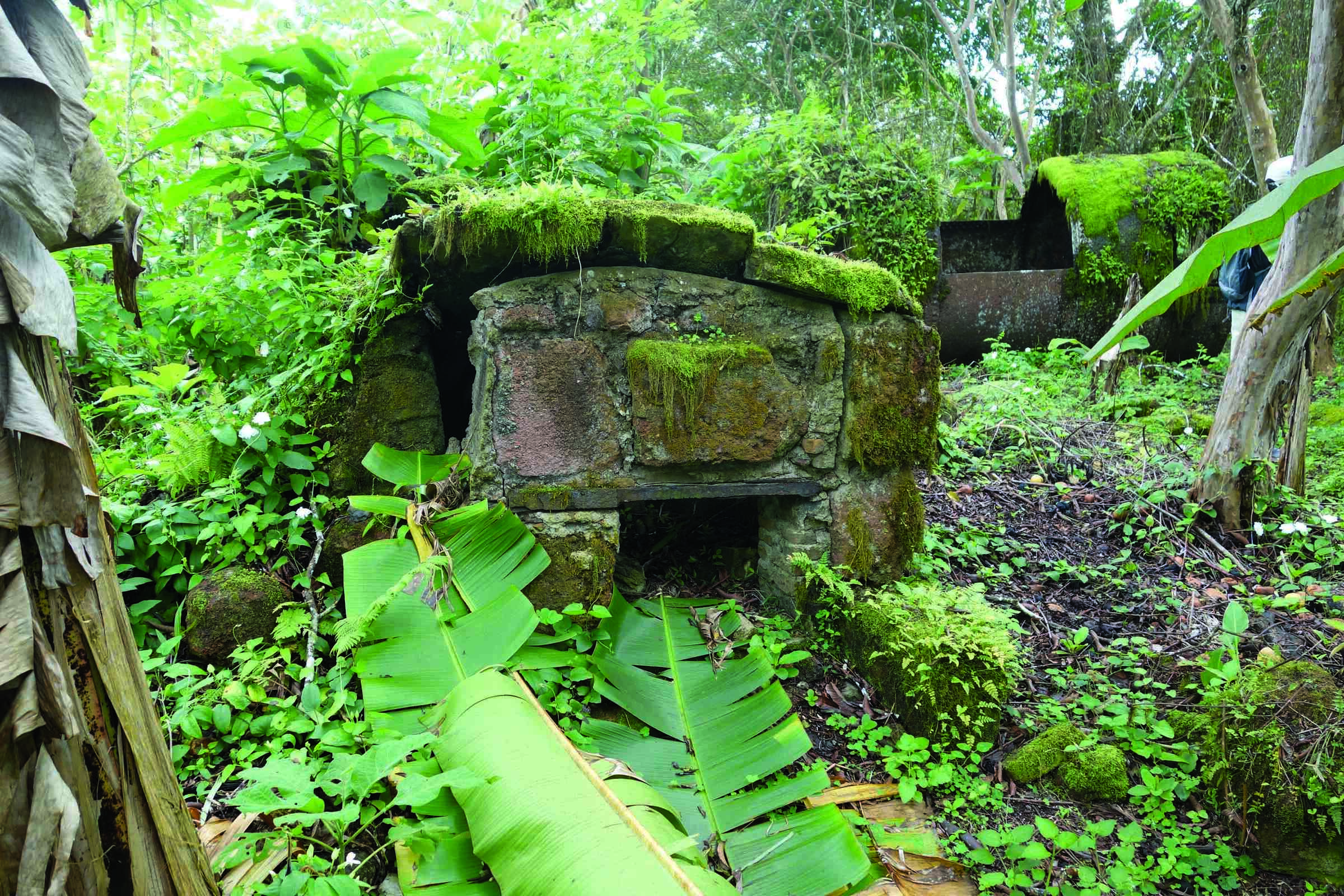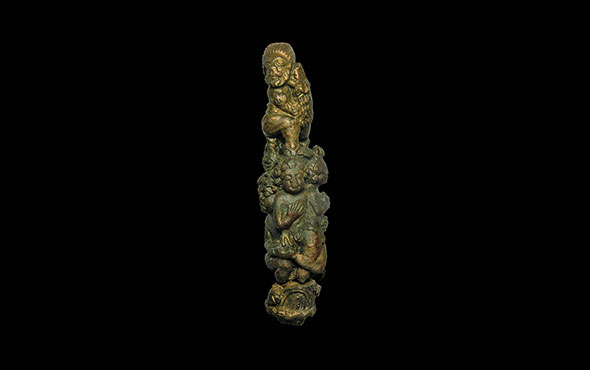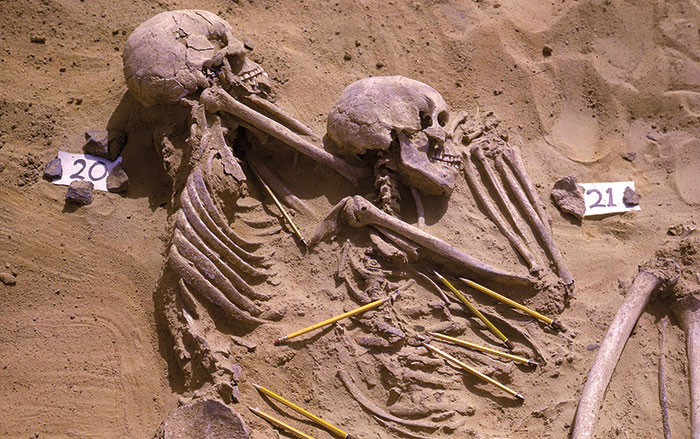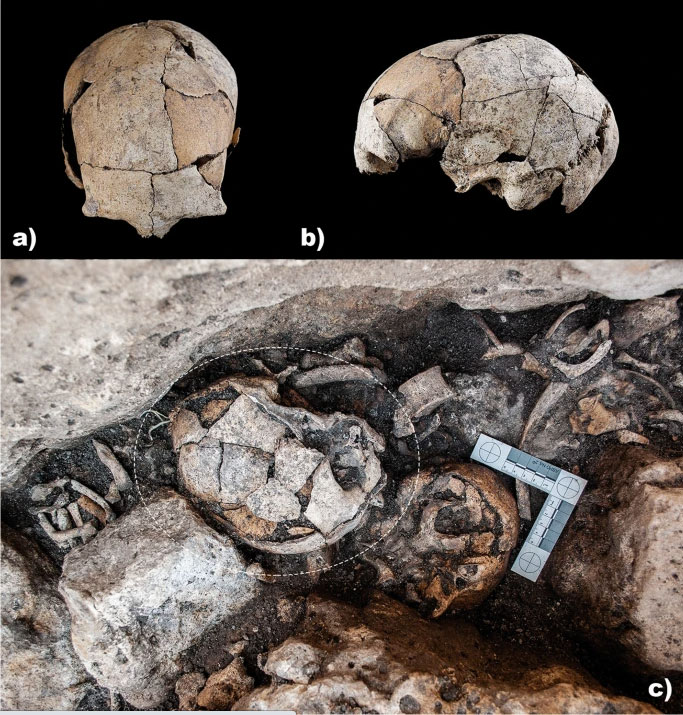
VALLADOLID, SPAIN—Phys.org reports that Sonia Díaz-Navarro of the University of Valladolid and her colleagues examined a skull found in northwestern Spain at the Dolmen of El Pendónis, a funerary chamber used from approximately 3800 to 3000 B.C. The researchers determined that the skull belonged to a woman who had lost many of her teeth and was between the ages of 35 and 50 at the time of death. The study also revealed that she had enlarged auditory canals, and that holes had been bored behind both of her ears. Bone regrowth in these holes indicates that the woman survived the procedure for at least a few months. Today, a similar surgery is performed to treat severe ear infections. A flint tool that had been heated several times was also found at the site. Díaz-Navarro and her team members think it may have been used to cauterize wounds. Read the original scholarly article about this research in Scientific Reports. To read about another archaeological discovery from Spain, go to "Crowning Glory."



